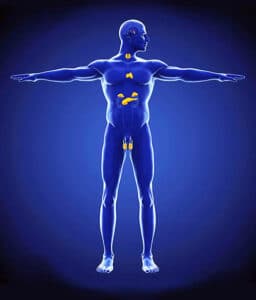Dukan diet
Dikan's diet was developed by Pierre Dukan, a French doctor of Moroccan origin. Dican diet does not recognize the calorie count and promises permanent weight loss, while allowing its adherents to eat as much as they want. Pierre Dukan's book The Dukan Diet, published in 2000, has sold more than 1.5 million copies and has been very popular in many countries for many years, especially in France. Millions of people stick to the diet he has developed, but the size of the business selling books and branded products is around 100 million Euros a year.
A French doctors' organization has openly accused Dican of making medicine a business without taking care of the health of those who lose weight.
The promise of the Dican diet (often referred to as the Ducan diet) is as follows: “Our 4-phase diet includes 2 steps to lose weight and 2 steps to keep it going forever! It's a healthy diet where you eat "as much as you want" from 100 foods - without hunger and frustration. "
The dican diet has 4 phases
The first stage - Attack
Initially, a person's normal weight is calculated, which is determined as the goal of weight loss. Then begins a phase of attack lasting two to seven days, during which unlimited protein intake is allowed - 68 foods high in protein plus a mandatory dose of oat bran (1.5 tablespoons / 9g) are allowed. As a result, significant weight loss is achieved.
The second stage - Cruise
32 vegetables are added to the products allowed at this stage and the days on which only protein may be ingested alternate with the days on which vegetables are also allowed to be eaten in addition to protein. Also a mandatory daily dose of oat bran (2 tablespoons / 12g). During this stage, the weight decreases gradually. Duration - until you reach the initially calculated normal weight.
Stage Three - Consolidation
This is the stage of consolidating the results and its duration depends on your total weight lost - 5 days for every 450g lost in the 1st and 2nd stage. Weight loss after the cruise is over. The diet retains its protein and vegetable base, and starchy foods such as bread are gradually being introduced. Only products with a high protein content are still allowed on Thursdays and there is still a mandatory daily dose of oat bran (2 tablespoons / 12g). The goal of the Dikan diet consolidation phase is to maintain the weight reached at the end of the cruise phase. Phase completion ensuring weight loss is maintained.
Stage Four - Stabilization
Be respected for the rest of your life! It is believed that in the previous stages you have learned to eat healthier and have developed a model of healthy eating that must be followed in the future. Theoretically, there are no more banned foods in the stabilization phase - you can eat whatever you want as long as you don't gain weight. But there are three inviolable rules to follow - only high-protein products are still allowed on Thursdays, there is still a mandatory daily dose of oat bran (3 tablespoons / 18g) and you have to walk for at least 20 minutes every day.
So far everything looks just as good, but In 2011, the British Dietitians Association named the Dikan diet "the diet of the worst celebrities" and to this day it is considered one of the most unhealthy subjects. Its rating in the 2021 U.S. News poll, which is evaluated by a group of nationally recognized experts in nutrition, obesity, food psychology, diabetes, and heart disease, is as follows:
- Overall rating - 1.8 out of 5 (last place). Experts have concluded that Dikan's diet is too restrictive and there is no evidence that it works. One of the participants described the diet as "idiotic".
- Treatment or prevention of diabetes - 1.8 out of 5. Experts rated the Dican diet as one of the lowest in the category. The lack of research on its effectiveness in preventing or controlling diabetes ruled out the possibility of a 'minimally effective' assessment.
- Ease of compliance - 1.3 out of 5. Experts ranked Dikan's diet among the most difficult diets. Its long list of rules and strictly restrictive stages make it difficult to comply with it. One expert commented: "With so many rules, it might be better to give up eating altogether".
- Effects on heart health - 1.4 out of 5. Experts were not convinced that following this diet could prevent, control or reduce the risk of cardiovascular disease.
- Long term weight loss - 1.8 out of 5. "Long-term weight loss" in diet studies usually means at least two years. The members of the group felt that Dikan's diet was ineffective in maintaining the weight lost during the first 2 stages. There are too many rules in the diet and it is too restrictive to be sustainable.
- Nutritional value - 1.5 out of 5. As the Dican diet bans whole groups of foods, namely cereals and fruits, it can lead to significant nutrient deficiencies. Experts said: "This is contrary to the recommendations for a healthy diet."
- Reliability - 2 out of 5. The assessment of dican's diet in terms of potential health risk is well below the group average due to an incomplete nutritional profile and a lack of long-term safety data.
- Short term weight loss - 3 out of 5. Experts believe that a diet plan for fast weight loss diet is moderately effective. The group was skeptical about losing up to 10 pounds (4.53kg) in the first week and 2 to 4 pounds (0.9-1.8kg) a week.
Why such a bad rating?
Any diet works well in the short term, especiallyfast diets”, But the problem is that the effect is short-lived, either because the diet artificially removes water and intestines, which logically recovers after the diet ends, or because the diet cannot be followed for a long time (breakdown, nutritional problems caused by lack of nutrients). etc.).
Dican diet can help you lose weight, but it can take into account the long-term health risks it poses. Mainly due to malnutrition and in particular:
- Insufficient fiber. For healthy intestinal function, it is recommended to eat at least 25 - 30 grams of fiber per day, but in the Dican diet, despite the fact that the amount of fiber in oat bran is mandatory (9-12 g of bran = 5 g of fiber).
- Insufficient fat. The use of avocados, nuts and seeds (sources of healthy fats) is not allowed. There is no scientific justification for such a significant reduction in fat - on the contrary, excluding fat limits the absorption of fat-soluble vitamins (such as vitamin D), which in turn will limit the absorption of calcium and other minerals. The production of several hormones is also restricted, including those involved in 'fat burning'. More on that why not exclude fat from the diet read HERE.
The study involved 51 women aged 19 to 64 years, who followed the Dican diet, concluded: “Women on a high protein diet were found to be deficient in many nutrients. Adherence to this diet can lead to long-term health risks from kidney and liver disease, osteoporosis and cardiovascular disease. '
Dican diet is not balanced because whole food groups are excluded. It has too many categorical, and at the same time unnecessary, restrictions - and they are more ritualistic than they actually help in the weight loss process.
Observed adverse reactions
Expected problems that may arise from following this diet - rapidly reducing the amount of fiber, carbohydrates and fats (as well as many other important and necessary trace elements in the body) and increasing the intake of protein:
- Various kidney problems - especially if you have kidney disease, because too much protein means too much strain on your kidneys;
- Various metabolic disorders (mostly carbohydrate absorption problems);
- Hormonal disorders (because the intake of fat, which is needed for the production of hormones, is very limited);
- Nervous system "disorder" with subsequent sleep disorders (insomnia);
- Severe dizziness;
- Indigestion and other digestive problems (mostly constipation);
- Constant fatigue.
Does Dikan's diet work in the long run?
Although many users of the Dukan diet have reported impressive results in the first and second stages of the diet, many experts believe that there is a lack of convincing scientific evidence that the Dikan diet is sustainable and effective in the long run.
Although the results of the surveys should be treated with caution, as they are less reliable than scientific studies, the results compiled by Le Journal des Femmes Sante are perhaps the best indication of the long-term results of Dikan's diet so far. Based on a survey of nearly 5,000 Dican dieters, it was found that:
- 35% respondents regained all the weight they had lost in less than a year after starting the diet;
- 48% regained weight within a year;
- 64% regained weight in two years;
- 70% regained weight in three years;
- 80% regained weight in over four years
The authors of the study believe that these results explain why people give positive feedback if they are interviewed within a few months of starting a diet - the first results are really good and the initial weight has not yet returned. The authors of the study also confirm that in the medium and long term, the Dikan diet is not more effective than any other restrictive diet. Weight gain accelerates after six months, and 50% respondents most often regain weight between six months and two years after starting a diet.
The study also emphasizes that these results are in line with the results of a 2009 survey of restrictive diets conducted by the French health authorities.
Why doesn't the Dican diet work in the long run?
It is difficult to determine all the reasons because there are no studies on the effects of the diet and its effects on the long-term health of its users. However, the survey provides some insight both from diet interviewers and from medical experts.
The rules of the stabilization phase are not followed
About two-thirds of people were unable to complete their diet to continue following the stabilization phase. This is in line with the opinion of US News survey experts that the diet has too many rules and restrictions to be sustainable - it is simply too difficult to follow.
Jo-jo effect
The report also included the views of doctors and nutritionists, who generally criticized Dikan's diet and its effects on the body. In particular, dieting alters the body's metabolism (the way the body stores and uses energy), which can lead to jo-jo effect, when dieters constantly lose and regain weight, resulting in a decrease in body muscle mass and an increase in fat mass, which in turn makes weight loss increasingly difficult and complicated.
Dr Marie-Josée Leblanc commented: “It is very unusual for this type of diet to remain effective in the medium term. By reducing your body's energy supply so rapidly (carbohydrates are normally our main source of energy), you are forcing it to adapt, and it is learning to work with fewer calories. As a result, when you return to a normal diet, your body receives too many calories compared to what it needs, and this (unused) energy begins to build up in the form of fat. This is the so-called jo-jo effect. “.
Key takeaways
Although the Dican diet can help people lose weight, several studies have linked it to possible health complications. Professional nutritionists consider the Dikan diet to be the most dangerous and unsupported diet. The drastic weight loss caused by giving up fat and carbohydrates is not long-lasting, as the diet does not change a person's eating habits at all - studies show that more than 80% slimming people have returned to their starting weight.
Sources:
Effects of low-carbohydrate and high-protein diets on the kidneys compared to low-fat diets
Share this article
Follow me on Facebook
I recommend reading these articles as well

Mental Fitness
What is mental fitness? How does Mental Fitness work? How does our mind affect our body? How can we boost our mental fitness?

Post-holiday diet
After the holidays, when I am both well eaten and drunk, I am often asked - What kind of post-holiday diet will help me to drop what I eat during the holidays? The answer is - just no diet!

Myths about slimming
Do Apple Cider Vinegar and Green Tea Really Help You Lose Weight? Is dark chocolate healthier than milk chocolate and are sports drinks necessary for anyone who sports?

Hormones - what are they, and what do they do?
Kā hormoni ietekmē mūsu organismu – mūsu veselību un izskatu? Kas ir hormonu disbalanss, kādas ir tā pazīmes un kā ar to cīnīties?

